
Hundreds of thousands of additional results
The USA Rank team is identifying ranking events (regardless of the host) and adding their FULL results into the database each week to support the full National Ranking system. Teams can still enter ALL of their results to include any we missed. USYS state, regional and national competitions and US Club National competitions are used for seeding purposes. More recent games carry a higher weight, however, ALL games affect your rankings equally, so you can't "buy" your ranking.
Rankings are calculated weekly
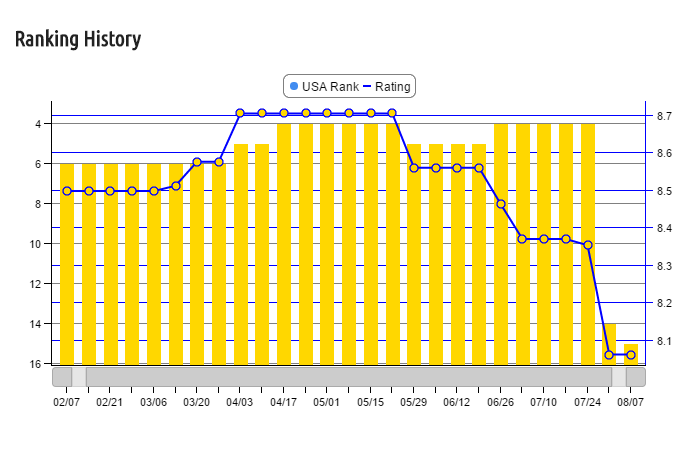 You'll be able to see how your rank has changed each week and what caused the change. You can see your team's ranking history for the past 26 weeks. We show you the calculation and full details so you can see how your results affected your team.
You'll be able to see how your rank has changed each week and what caused the change. You can see your team's ranking history for the past 26 weeks. We show you the calculation and full details so you can see how your results affected your team.
Teams are grouped into levels
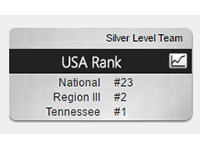
Your ranking is displayed as your position within your level (Gold, Silver, Bronze, Red, Blue, Green). What is important to you is your position relative to the teams you fairly compete with and the ability to consider tournaments that offer divisions within range of your team's ability. Your team's level is determined by your national rank.
- 1-100 = Gold
- 101-250 = Silver
- 251-450 = Bronze
- 451-750 = Red
- 751-1050 = Blue
- 1051-1550 = Green
Age Changes are managed
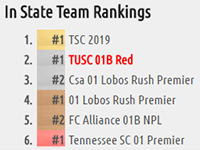 The age change mandate has caused many teams to change their competitive age. The new ranking calculation allows for that change without losing your team's ranking or game history. You'll see your ranking when you apply for events and you can make sure it is accurate so that you athlete's experience at the event is both challenging AND productive.
The age change mandate has caused many teams to change their competitive age. The new ranking calculation allows for that change without losing your team's ranking or game history. You'll see your ranking when you apply for events and you can make sure it is accurate so that you athlete's experience at the event is both challenging AND productive.
USA Rank Key
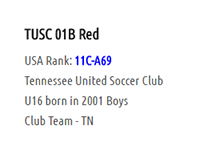 Each team is assigned a USA Rank Key which will allow every event in the country to access a suite of tools to seed their event accurately and objectively. Your six character key will lead directly to your team's site on a computer or mobile device.
Each team is assigned a USA Rank Key which will allow every event in the country to access a suite of tools to seed their event accurately and objectively. Your six character key will lead directly to your team's site on a computer or mobile device.
Event Rankings
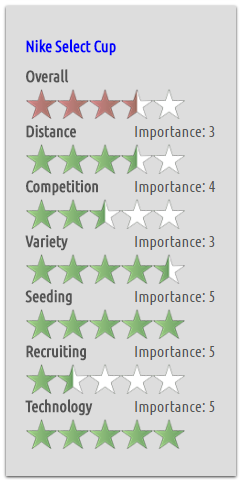 Soon you will be able to access the most complete tournament database in the country which uses your teams stats to evaluate which events are best for YOUR team.
Soon you will be able to access the most complete tournament database in the country which uses your teams stats to evaluate which events are best for YOUR team.
It is nice to know which event has the top 25teams in the country, but unless you happen to be one of the top 25 teams in the country, how does that help you? Instead...
Which events fall within the distance your parents are willing to travel to a given weekend?
Which events feature teams at your age; at your level?
Which events include teams outside your neighborhood; teams you didn't play against in the past season?
Which events use objective seeding to make sure you get placed wher eyou belong?
Which events provide access to the recruiting features that are important?
Which events use technology that keeps you connected?
And of course which of those categories are most important to you and your team?